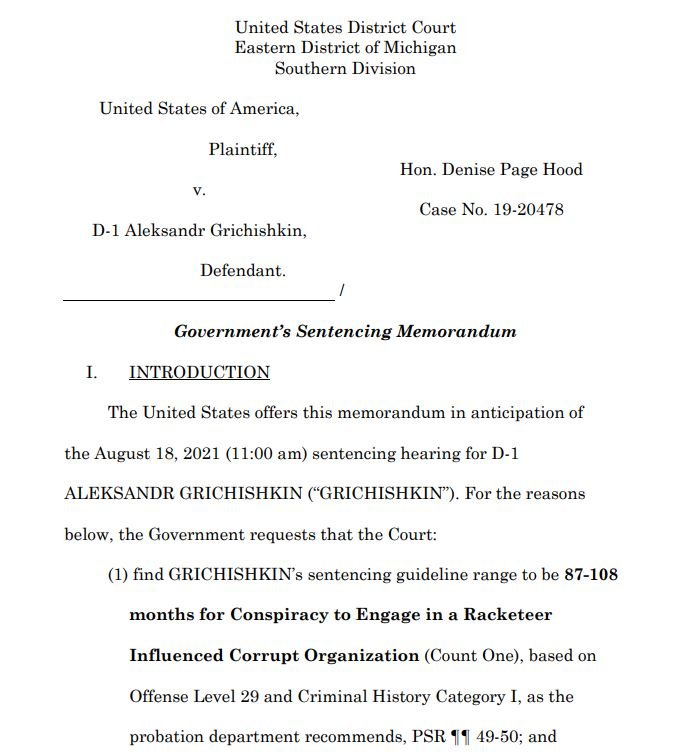The U.S. Department of Justice (DOJ) announced the sentence of two individuals accused of conspiracy to commit wire fraud by operating a bulletproof hosting service that counted multiple cybercriminal operations among its clients. With this service, active between 2008 and 2015, the defendants provided the infrastructure required for hosting hacking tools and executing malicious campaigns, including malware infections and phishing.
Estonian citizen Pavel Stassi and Lithuanian Aleksandr Skorodumov were sentenced to two and four years in prison, respectively, as the organization’s administrator and the malicious system admin.

In the ruling, DOJ representatives mention that hackers rented IP addresses, servers and domains to various members of the cybercriminal community, which directly facilitated the deployment of botnets, malware infections, network compromise and other variants of cyberattack. Among the defendants’ clients were developers of malware variants such as Zeus, Citadel and Blackhole Exploit Kit.
One of the operations linked to this service resulted in losses of up to $65 million USD, without considering the damages generated in the compromised infrastructure. Operators of the bulletproof hosting service also helped cybercriminal groups create new infrastructure through identity fraud, thus evading the authorities’ efforts to disrupt these malicious activities.
Skorodumov and Stassi were in charge of keeping the malicious website running properly, as well as advising some of the clients. Moreover, two Russian citizens were in charge of personnel management and marketing activities on the dark web; all members of this illegal scheme have already pleaded guilty.
The investigation of this case was carried out by the Federal Bureau of Investigation (FBI), in collaboration with the authorities of the United Kingdom, Germany and Estonia.
To learn more about information security risks, malware variants, vulnerabilities and information technologies, feel free to access the International Institute of Cyber Security (IICS) websites.
He is a cyber security and malware researcher. He studied Computer Science and started working as a cyber security analyst in 2006. He is actively working as an cyber security investigator. He also worked for different security companies. His everyday job includes researching about new cyber security incidents. Also he has deep level of knowledge in enterprise security implementation.
